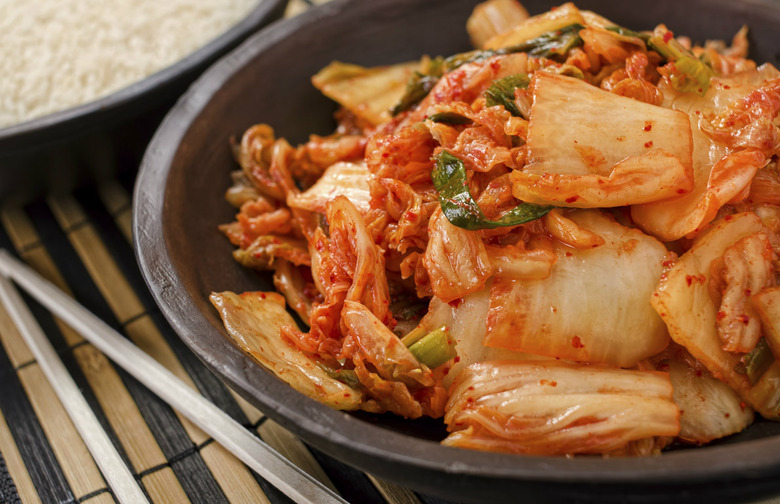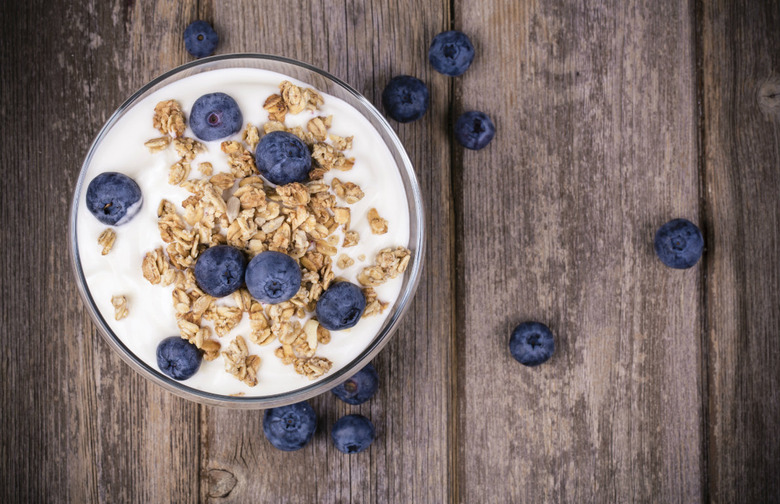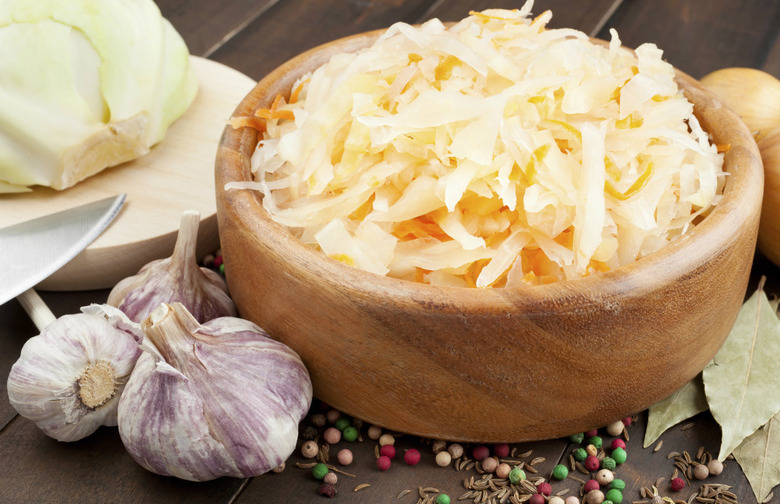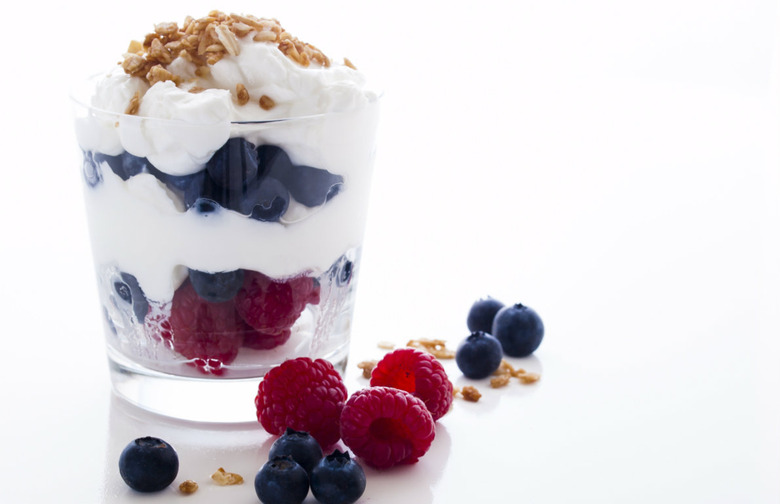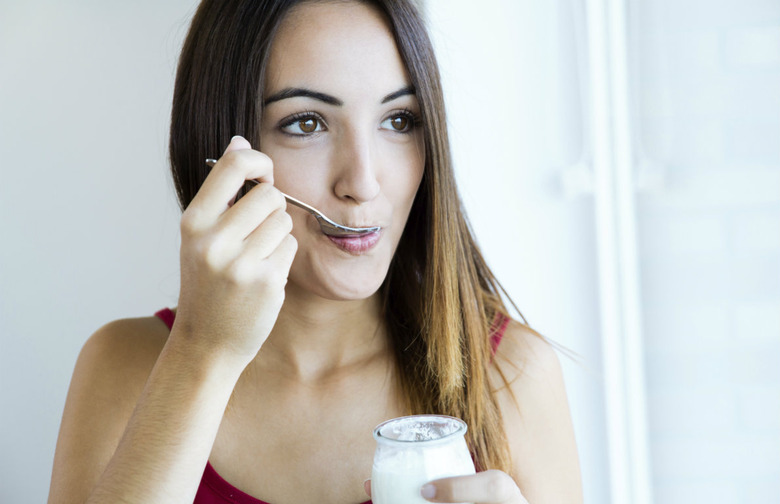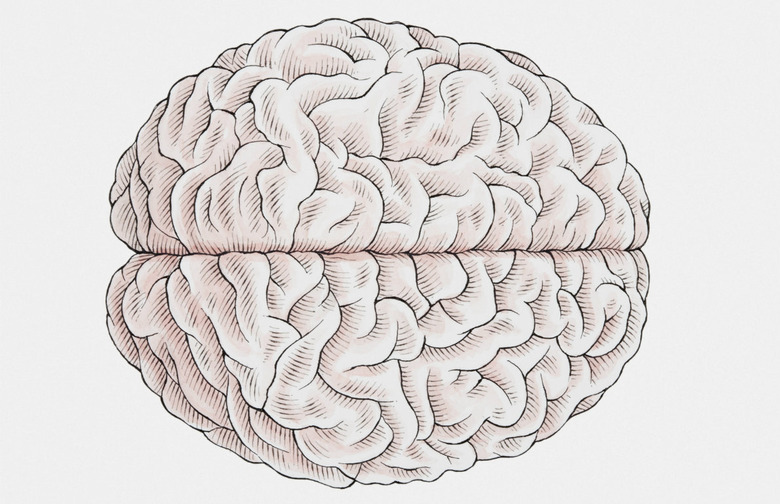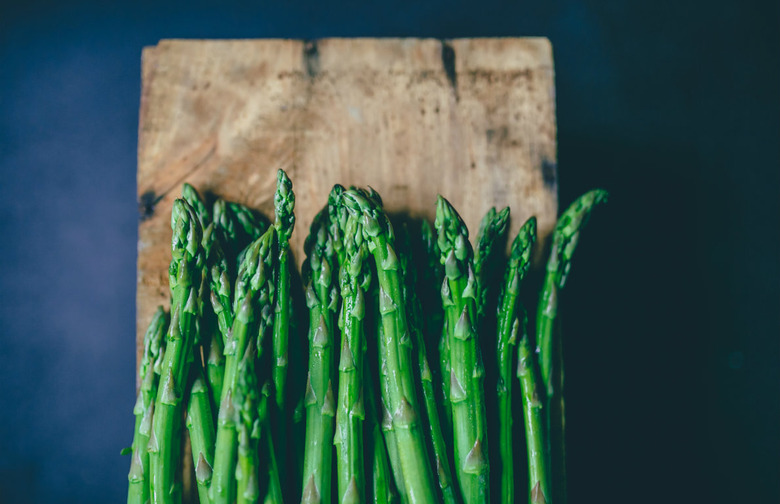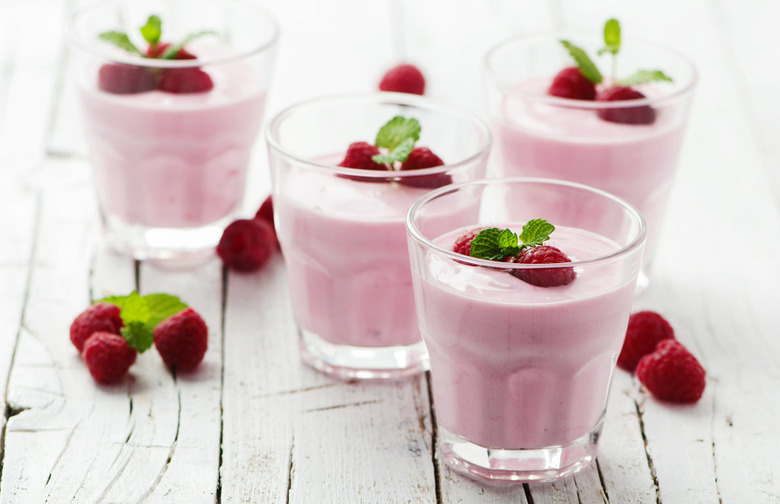9 Things You Need To Know About Kombucha, Kimchi, And Other Probiotic Foods
You've probably been hearing more and more about the benefits of probiotics — foods that contain "good bacteria" — like kimchi, kombucha, and yogurt, for example. Should you be eating them regularly? How can you make the most of these good bacteria? We asked a few doctors, dieticians, and even fermentation specialists to help us make sense of probiotics, and the foods that contain them naturally.
What are Probiotics?
Good question! Here's the rundown on probiotics from Joann Kwah, MD, attending physician and director of the Patient Navigator program in the Department of Gastroenterology at Montefiore Health System, and an assistant professor at the Albert Einstein college of Medicine:
"Probiotics have several potential beneficial properties to the body as they are commonly known as the 'good bacteria' that already reside in our body. They are thought to help the body fight infections as well as to help with gastrointestinal symptoms including diarrhea, bloating, and constipation. Also, they have been used to try to prevent or treat allergies including skin conditions such as eczema. Finally, probiotics have also been used to fight vaginal infections. Studies are ongoing to validate if these benefits actually do exist."
What Do They Do for Gut Health?
"Probiotics are thought to help the gastrointestinal tract in a few ways," says Dr. Kwah. "First, it is thought that the addition of probiotics, or 'good bacteria,' can help improve the intestine's barrier function to protect the intestines from harmful bacteria, as well as suppress the growth of harmful bacteria that may be in the gut. Second, probiotics are thought to modulate the immune system in a protective way against inflammatory conditions such as Crohn's disease or colitis.
"Finally, probiotics are thought to possibly modulate the perception of pain in the gut, possibly helping to diminish pain that is common in functional disorders" — illnesses which somehow impair normal bodily processes, but cannot be seen during medical examinations like blood tests, X-rays, or endoscopies.
What Foods Contain Probiotics?
"Yogurt is probably the most well-known food with probiotics," according to Dr. Kwah. "Similar to yogurt is kefir, which is a thick, creamy yogurt-type of milk that contains probiotics. Other foods include certain soft cheeses such as Gouda, Cheddar, or Swiss; pickled and fermented dishes such as unpasteurized sauerkraut or certain types of pickles. Other probiotic foods include kimchi, miso paste, sourdough bread, or tempeh (a fermented soy product that is often used in place of meat)."
How Often Should We Eat Probiotic Foods?
Currently, there are no public guidelines or recommendations for the consumption of probiotic foods. "While probiotics have been shown to help the body, there are only limited studies to support this and bigger studies need to be done to validate the proposed benefits," Dr. Kwah cautions.
What Do Probiotics Have to Do with Your Mood?
"Ninety-five percent of serotonin is produced inside your digestive tract in something called gut-associated lymphatic tissue or GALT – not your brain," explains Dr. Gabrielle Francis, a holistic medicine practitioner whose clients have included Bruce Springsteen and Aerosmith. "Serotonin regulates your hormones, your digestive system, your immune system, and your nervous system. In other words, it's not just a happy molecule. There is a direct connection between the health of our gut and our emotions ('gut feelings')."
How Do Probiotics Affect Your Brain?
A growing body of research indicates a significant link between brain function and the gut — which, as we've learned, is directly affected by the existence of probiotics that protect the intestines from harmful bacteria.
One recent study, for instance, showed that mice who were fed a Western diet (high in both fat and sugar) experienced negative changes in gut bacteria that was associated with decreased memory and cognitive flexibility.
"Bacteria can release compounds that act as neurotransmitters, stimulate sensory nerves or the immune system, and affect a wide range of biological functions," explained Kathy Magnusson, the paper's lead researcher and a professor at Oregon State University. "This work suggests that fat and sugar are altering your healthy bacterial systems, and that's one of the reasons those foods aren't good for you. It's not just the food that could be influencing your brain, but an interaction between the food and microbial changes."
What Else Can Probiotics Do?
Because probiotics are experiencing such a popularity boost at the moment, plenty of promoters have claimed that probiotics can do things like fight illness, increase allergy resistance, and even protect one's DNA — however, you should not believe these claims, warns Morton Tavel, MD, a clinical professor emeritus of medicine at the Indiana University School of Medicine.
"Various conditions are at least potentially amenable to a trial of probiotics, including decreasing lactose intolerance, lowering cholesterol levels, reducing or preventing high blood pressure, and treating constipation," says Dr. Tavel.
"As this list above suggests, the entire subject is incredibly complex and speculative because of the number of variables involved, including the differing varieties of probiotic microorganisms. At present, although many avenues are being explored, research extends most notably to possible links between probiotics and heart attacks and effects on elevated blood pressure, but substantive results likely lie far in the future."
What are Prebiotics?
Prebiotics are carbohydrates that cannot be digested by the human body, which are essentially food for probiotics. Jerusalem artichokes, asparagus, bananas, legumes, and leeks are all rich in prebiotics.
What Else Should People Know about Probiotics?
Probiotics are not regulated by the U.S. Food and Drug Administration, unlike other medications or foods with medical applications. Probiotics can benefit the body in many ways, but anyone who is interested in incorporating probiotics into their diet should discuss the matter with a healthcare provider first.
